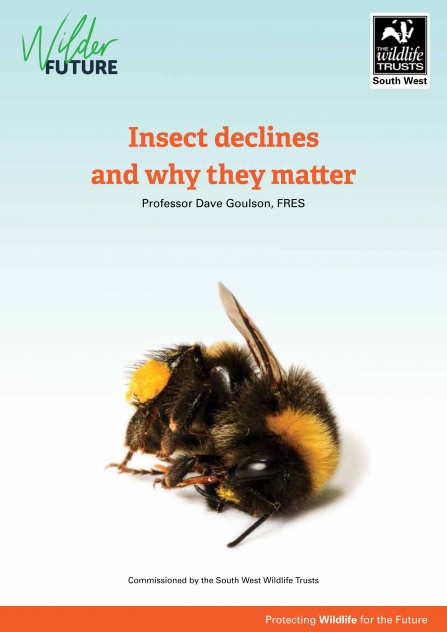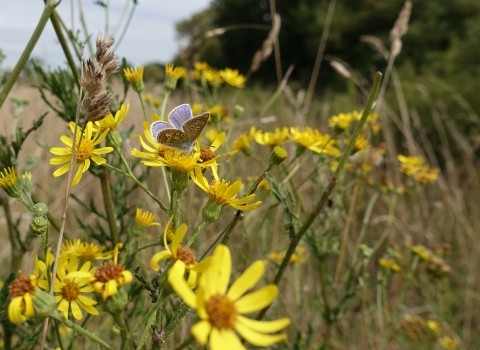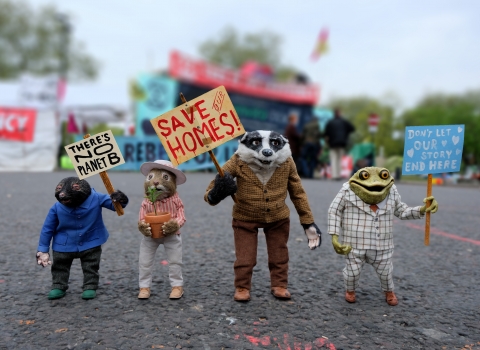Today a number of Wildlife Trusts and partners have collaborated to launch the Action for Insects campaign to coincide with the launch of an important new report, Insect Declines and Why They Matter authored by invertebrate expert Dave Goulson, Professor of Biology at the University of Sussex.
Across the country, insects have been in significant and long-term decline. In the UK:
- 23 species of bee and flower-visiting wasp species have gone extinct in the UK since 1850
- The geographic ranges of many bumblebee species more than halved between 1960 and 2012.
- Numbers of butterflies fell by 46% between 1976 and 2017, with declines running at 77% in ‘habitat specialist species’ such as marsh fritillaries and wood white butterflies.
- The abundance of larger moths such as the garden tiger dwindled by 28% between 1968 and 2007




